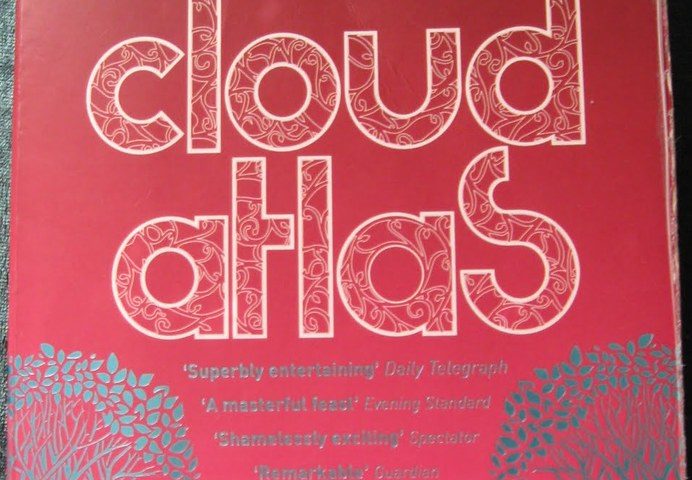“Books don’t offer real escape, but they can stop a mind scratching itself raw.” -David Mitchell, Cloud Atlas
This issue we’re going to talk about a kind of strange book, Cloud Atlas by David Mitchell. Why do I call it a weird book? Well, it comes in eleven parts, each written in its own style, spanning thousands of miles and nearly as many years. The first five stories introduce a new character and all end in cliffhangers. The first story to reach its conclusion is the sixth. The book then revisits the first five stories in reverse chronological order. So the story is told in a very structurally strange order.
The other weird part of the book is the feeling that this is really a collection of short stories throughout the first half of the book. It is hard to overstate just how disparate the stories of this book seem on the first read. The first story is about a nineteenth-century lawyer crossing the Pacific. Next, the book jumps to 1931 and we learn about a British composer’s less-than-moral escapades told through letters to his lover. The book then jumps again to the 1970s where a reporter uncovers a nuclear scandal told in the style of a thriller. The book then moves to the present(ish) to tell the story of an aging vanity publishing house who is stuck in an old person’s home. The book then gets even stranger as it moves to the far future, where we hear the story of a genetically engineered slave who recounts how they gained intelligence. Finally, the sixth story is of a pacific tribesman after the apocalypse. Did you think I was kidding when I said the stories of this book feel like they should have nothing to do with each other?
So what is the point? A bunch of weird stories told in a strange order and the reader is supposed to feel something. Well, the book focuses a lot on a theme of cycles, human nature, and reincarnation. While the stories seem disparate, the reader can see similar threads emerge as deja vu moments draw the reader’s attention and more explicitly, many of the characters share a comet-shaped birthmark. The book deals with the subjects of truth, death, and power, slowly building up to the message that power itself is destructive and that it often destroys what it seeks to control.
Cloud Atlas is profound, bordering on obvious, which is a fitting oxymoronic description for a very unique book. Mitchell uses wonderfully prosaic language throughout the book even though the different styles of storytelling. The repeated cliffhangers keep you hooked until the very end of the book. After all, as Mitchell says, “A half-read book is a half-finished love affair.”


'Daniel’s Book Club' has no comments
Be the first to comment this post!